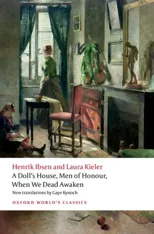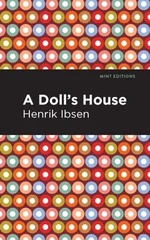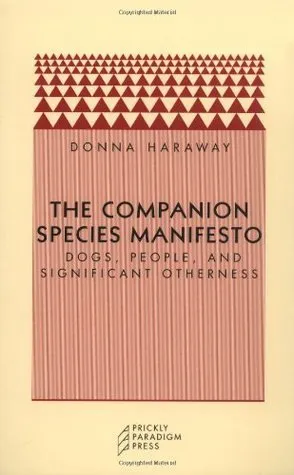A Doll's House
(Autor) Henrik IbsenOne of the best-known, most frequently performed of modern plays, A Doll's House richly displays the genius with which Henrik Ibsen pioneered modern, realistic prose drama. In the central character of Nora, Ibsen epitomized the human struggle against the humiliating constraints of social conformity. Nora's ultimate rejection of a smothering marriage and life in "a doll's house" shocked theatergoers of the late 1800s and opened new horizons for playwrights and their audiences. But daring social themes are only one aspect of Ibsen's power as a dramatist. A Doll's House shows as well his gifts for creating realistic dialogue, a suspenseful flow of events and, above all, psychologically penetrating characterizations that make the struggles of his dramatic personages utterly convincing. Here is a deeply absorbing play as readable as it is eminently playable, reprinted from an authoritative translation. A selection of the Common Core State Standards Initiative.
Henrik Ibsen
Henrik Ibsen was a Norwegian playwright and poet known for his groundbreaking contributions to modern drama. His works often focused on social issues and the complexities of human relationships. Some of his most notable works include "A Doll's House," "Hedda Gabler," and "Ghosts." Ibsen is credited with revolutionizing the theatrical form by introducing psychological realism and exploring taboo subjects such as women's rights and societal expectations. His plays have had a lasting impact on the genre of realism and continue to be performed and studied worldwide. "A Doll's House" is perhaps his most famous work, sparking controversy and debate with its portrayal of a woman's struggle for independence and self-fulfillment. Henrik Ibsen's legacy as a playwright remains influential and enduring in the world of literature.












